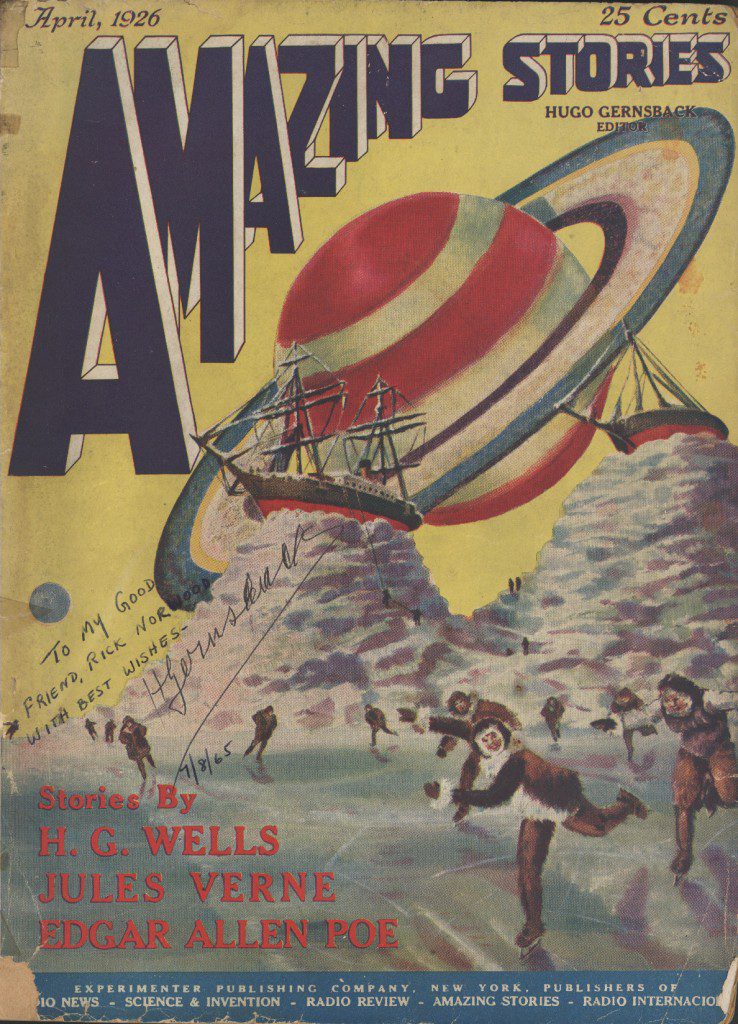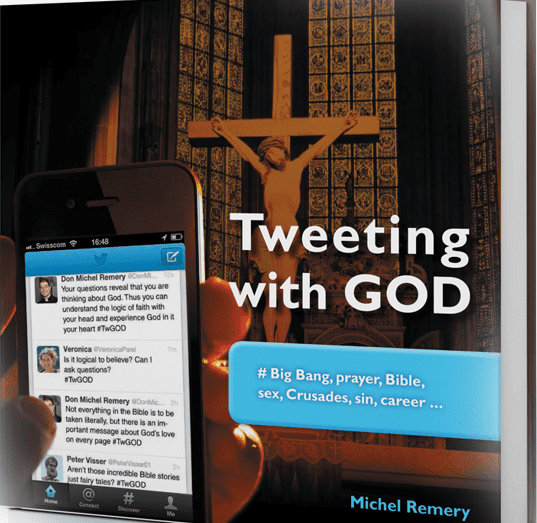
The world’s being squeezed by a vise. On one side is materialism, determinism, no Creator, or a god that’s indistinguishable from creation. Thus, it’s up to man to take control—Serling’s “The Obsolete Man”, Orwell’s “1984”, Bradbury’s “Fahrenheit 451”. On the other side, the God of rules. Obey and go to heaven, disobey and go to hell. Thus, man’s role is to propitiate a capricious lord and master—Zeus, Tolkien’s Sauron, the god of ISIS and some fundamentalist Christians.
Mercy and justice, unfathomable and one of us, omnipotent and nailed to a cross, the natural world and the transcendent, are hard to grasp, apparent contradictions. But what if we’re not enslaved by the laws of nature or a rigid lawgiver? What if we have the freedom to make choices that have temporal and eternal consequences?
A fantastic story we hear, a novel we’ll never forget, a bolt from the blue while we’re walking, helping us to unlock truth. Storytelling can pry this vise open. Stories that depict radical mercy, servant leadership, what friendship entails, the persistent and often painful call to “conversion”, hope that surpasses mere optimism or disposition, the insidiousness and ravages of evil. Showing us—not telling us through the lips of sock puppet characters—how these things vitalize or destroy human lives.
The “Rise And Fall of The Third Reich” by William L. Shirer is hardly a story. I occasionally read ten or twenty or fifty pages, always shaken by the pathological lying, killing, and self-delusion. On the back page of the book I felt compelled to write: THIS IS WHAT A WORLD WITHOUT THE TRUE GOD LOOKS LIKE. In “The Lord of The Rings”, Gollum depicts the pathetic narrowness of cramped lives that succumb to evil, though we absorb this truth differently in stories than we do by reading historical accounts.
In F. Scott Fitzgerald’s Jay Gatsby, we have both vise clamps in one man, the unconstrained schemer with a disordered image of the “divine” Daisy, a schizophrenic perspective that’s commonplace in our world.
In Graham Greene’s raw and troubling “The Quiet American”, his atheistic journalist who caused the death of another man (Pyle) says, “I thought of the first day and Pyle sitting beside me at the Continental…Everything had gone right with me since he had died, but how I wished there existed someone to whom I could say that I was sorry.” Where does one go to confess and receive forgiveness when there is no God?
In Richard Adams’ “Watership Down”, the leader of a band of itinerant rabbits is a character similar to the apostle Peter, not especially good at anything, though someone the other rabbits—the strongest, fastest, smartest, most imaginative—desire to follow, and he leads them somewhere none of the others could lead them.
Atticus Finch stands against the lynchers that are determined to murder Tom Robinson. He doesn’t flinch. But when Bob Ewell spits in his face, he doesn’t respond. What can such seemingly contradictory behavior teach us?
In “The Man”, Ray Bradbury’s spaceship Captain Hart is obsessed with following and finding a Christ he’s convinced is going from planet to planet. Hart’s ever so close, getting closer and closer, missing the Man by a week, a day, a few hours. After Hart dashes off in his spaceship, one who remains behind is told, “And he (Hart) will go on and on, thinking to find that very thing which he left behind here, on this planet…Come along now. We mustn’t keep him waiting.”
Why does Thornton Wilder’s commercial salesman and honest, virtuous, indefatigable proselytizer George Brush fail to convert those he evangelizes in “Heaven’s My Destination”? Could it be that his God is too small, a belief that everything depends on him?
The good angels in Tolkien’s mythology—Gandalf and many of the Valar and Maiar, practice forbearance and restraint when it comes to impeding human and elven freedom, while there’s no restraint when it comes to the fallen angels—Melkor, Sauron, Saruman—who will do anything they can to re-make the world according to their desires.
Rod Serling’s “Twilight Zone” episodes are ripe with provocative ideas, from “The Obsolete Man” where books are forbidden and human beings are nothing more than cogs in the state’s machine, to “A Pitch For The Angels”, where a call to heroic generosity is made and answered, to “The Monsters on Maple Street” that challenges the “tribalism” that resides in all of us.
In Dostoevsky’s “Crime And Punishment”, a man feels compelled to commit a heinous crime, and is then haunted by the evil he’s done. How many of us have faced similar crises in our lives, albeit in smaller matters. How could I have done that? Where can I go to find peace?
In my novel “Iota”, an unspoken question is asked: who are you when you’re stripped naked, and everything is laid bare? And who can handle this nakedness alone and unaided?
Jesus, the Christ, the man on the cross, is so familiar we don’t see or hear him anymore. His name evokes boredom, blank stares, impatience, condescension, “another time perhaps”. He’s like the invisible man in G. K. Chesterton’s story, “The Invisible Man”, invisible because he’s so familiar. Sean Wright’s poem, “When Jesus Came To Birmingham” tells a similar story, one of apathy, with Wright’s Jesus as anguished as at Calvary.
Can anything good come from the Order of the Seekers for Truth and Penitence (the Torturers Guild)? Gene Wolfe’s “The Book of The New Sun” challenges us to answer this question when the apprentice torturer Severian is banished for showing mercy by allowing a prisoner who’s been sentenced to an excruciating death to take her own life. In bizarre and startling ways, Wolfe explores the demarcation between individual and community, the expansive effect of mercy, time as a meandering, backtracking stream rather than a straight steady-flowing canal.
Raymond Chandler’s private eye, Phillip Marlowe, was called a “slumming angel”, because for all his flaws he has an inerrant sense of justice, and an inclination to mercy, but the best the God-less Marlowe can do is pull the temple down around him, as Samson did; respite from the darkness, not freedom from it.
Flannery O’Connor depicts twisted religion in “Wise Blood” and “The Violent Bear It Away” so we can see the devastation of false religion, so we can see that our yearning for something outside ourselves doesn’t always lead to light and life, so we can see that human freedom must grapple with the mysterium iniquitatis, the mystery of evil.
Am I my brother’s keeper? Who is my brother? When she should be using her few remaining days for her natural mission, E. B. White’s Charlotte takes on a super-natural mission to save Wilbur the pig, a creature belonging to an “alien race”. Moreover, Wilbur is just one unspectacular pig, and all Charlotte’s labors will do nothing to change the practice of hog farming.
Well-written, rousing, meaningful stories help us to envision a space between those enslaving vise clamps. Some of these stories are hard work, some are troubling, some shake us to the core. Seeking and finding a space for authentic freedom and enlightenment is worth it.
T. M. Doran is the author of “Toward the Gleam”, “Terrapin”, and “Iota”. His website is at tmdoran.com












